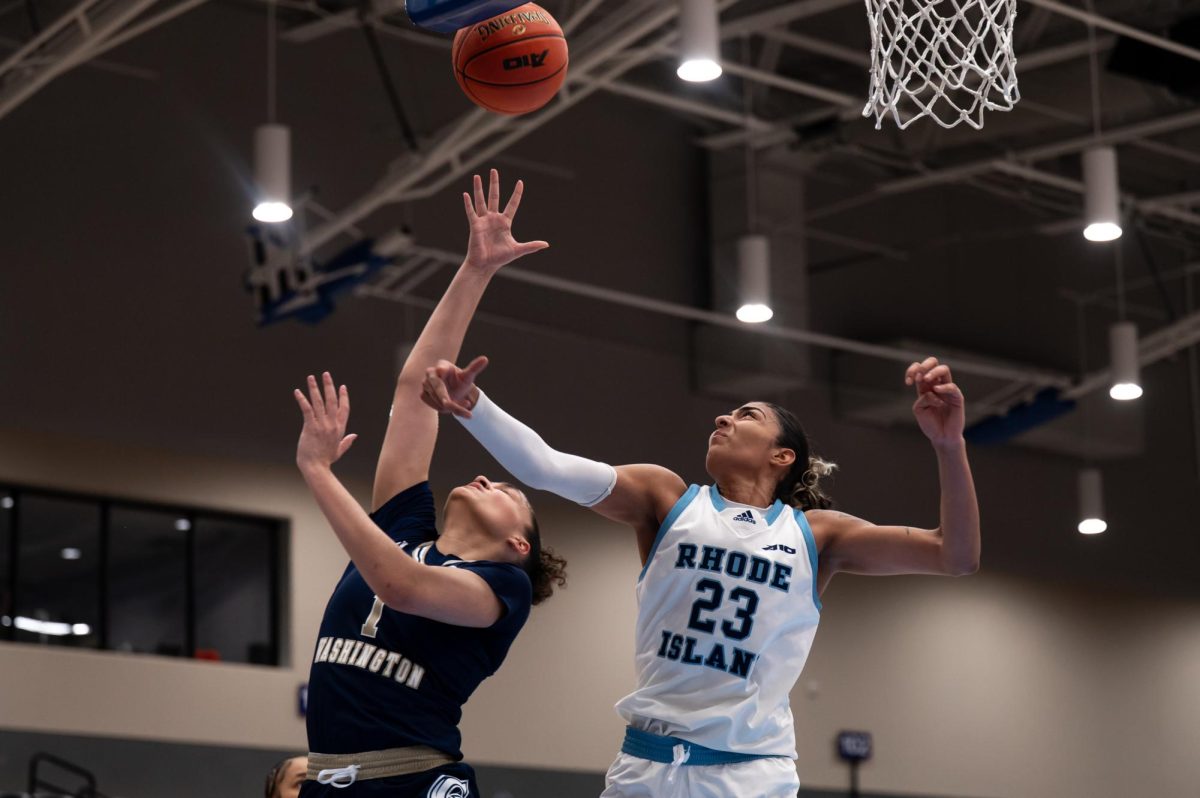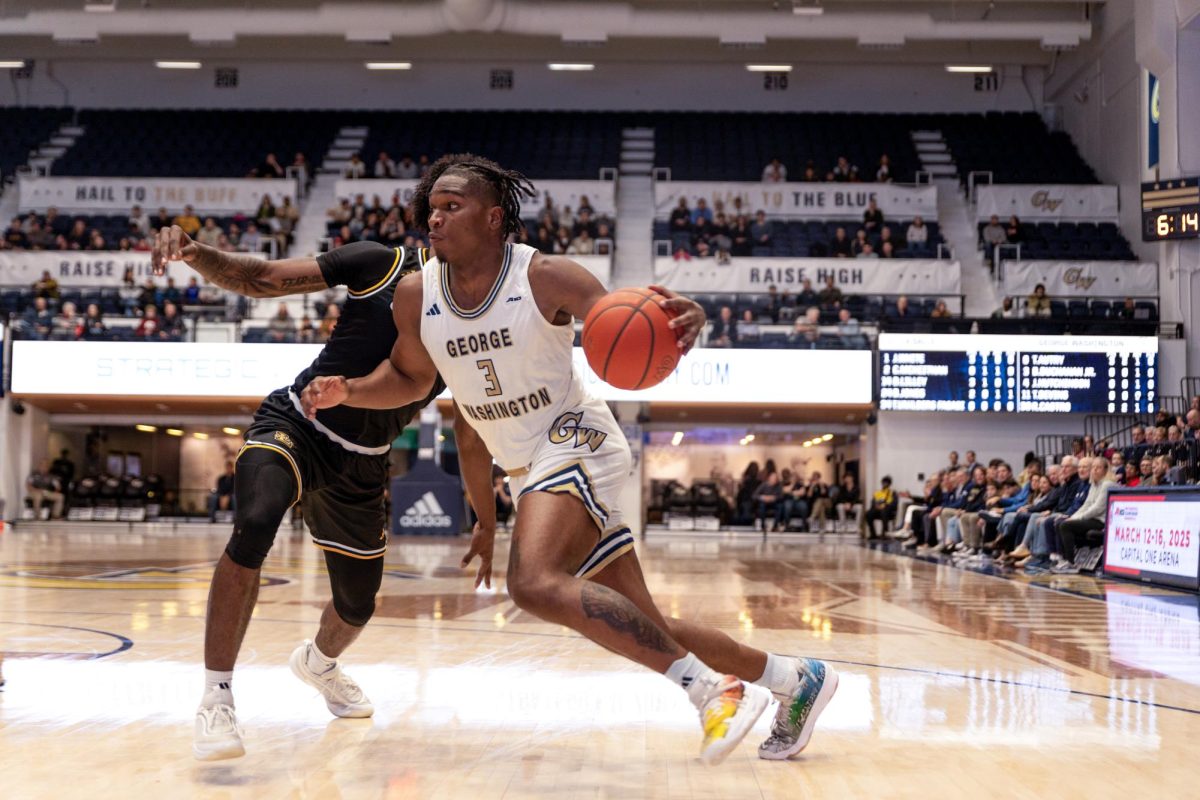He is perhaps the most renowned coach of all time, and certainly any discussion of NBA coaches begins and ends with him. Between 1957 and 1966, Arnold Red Auerbach and the Boston Celtics won nine NBA championships, including eight in a row. And it all started in the nation’s capital – with a man named Bill Reinhart and a place called Foggy Bottom.
It was a far different GW then – a far different Washington – but one thing is the same. Several times a week, Red Auerbach parks his car outside the Smith Center and walks the sidewalks of his youth.
Over the last several years, Auerbach’s profile on campus has risen considerably. There’s now a banner and a plaque honoring him at the Smith Center, in addition to his place in the GW Athletic Hall of Fame. And for the last several years, Auerbach has driven down from his home on Massachusetts Avenue several times every week to play racquetball – very often with Aubre Jones, the recreational sports director and son of Sam Jones, Celtic legend and one of the NBA’s 50 greatest players.
But for decades Auerbach had little to do with the basketball program that so proudly claims him.
You don’t want to become a pain in the butt, said Auerbach last Monday from his Washington home before leaving to be honored by the Celtics Wednesday night. If they want your advice, they come to you – you don’t want to be a nosy, messy alumnus.
Originally, Auerbach had close ties to the program because of the admiration he held for GW’s all-time winningest coach, Bill Reinhart.
At a scrimmage between GW and Auerbach’s junior college in New York, Reinhart noticed Auerbach and brought him to GW, where he led the team his senior year with 8.5 points per game (when he was known as Reds). He lived in the Varsity House on K Street and played games at Tech High School and Riverside Coliseum, which was located where the Watergate complex is now.
We had a hell of a club, he said. We played the toughest schedule in the United States, and if they had had rankings then, we would have been in the top five or six.
The moment Auerbach refers to as the greatest thrill of my life came at GW. Legendary Oklahoma A&M coach Hank Iba (who would enter the Basketball Hall of Fame with Red) came up to him after a game and, according to Auerbach, said, You’re one hell of a player, and I want to shake your hand.
But Auerbach’s future was not in a uniform – it was in a suit. And the knowledge he gained from Reinhart, especially about drills, conditioning and fast breaks, earned Reinhart Auerbach’s eternal respect.
In my opinion, he was a great coach, said Auerbach. He was about 30, 35 years ahead of his time. There are coaches in the Hall of Fame who couldn’t carry his jock.
Auerbach says he never had any intention of returning to New York because he married a GW girl, and so his first real coaching job came at Roosevelt High School. After time with the Navy during World War II, he got a job coaching the Washington Capitals of the brand-new NBA. Soon after he landed with the Celtics.
The rest, as they say, is history, Auerbach said.
And, of course, it was. Auerbach won nine championships, all with center Bill Russell. In those days, scouting was a far different animal, and it was Bill Reinhart who told Auerbach, after GW played the University of San Francisco in Oklahoma City, that he had to draft Russell.
But after Reinhart retired, decades passed with little contact between the GW program and Red. Coaches Lefty Driesell of Maryland and Georgetown’s John Thompson (who played for the Celtics) often solicited Auerbach’s help, but no one at GW ever asked. If success can rub off a person, it was certainly a mistake for the fallen Colonials to ignore the greatest basketball coach of all time.
Then Mike Jarvis arrived from Boston University, invited Red back into the family, and GW rose back into national prominence. Red says he had no input on Jarvis’ or Tom Penders’ hiring but said he admires both coaches.
Today, Red can be seen at his usual seat at men’s games (bottom level, center section, a few rows from the top) with his Celtics hat and his victory cigar. His presence is a reminder to everyone of what a Colonial can accomplish. And for his part, he finally has friends and a program that he can be proud of in return.






